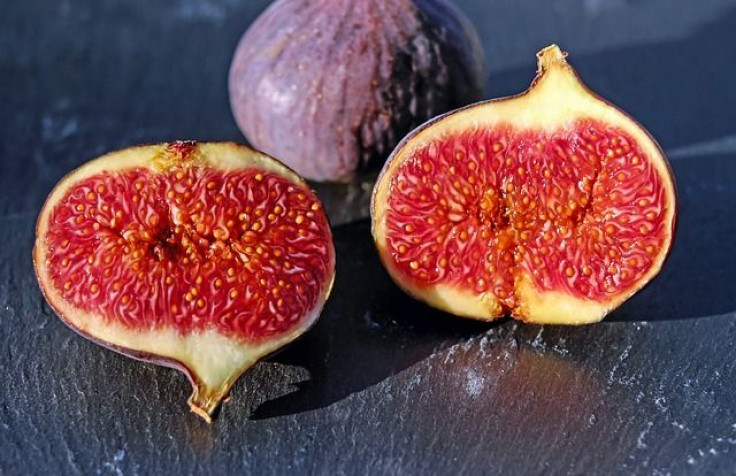Health Benefits Of Fig Fruit And Leaves: 4 Amazing Things Eating Figs Does To The Human Body

Figs are more than just the main ingredient in the popular cookie, or fig bar. A soft hint of sweetness and seedy texture help make fig dishes either sweet or savory. Whether you eat them fresh or dry, figs offer a multitude of health benefits to replenish the human body.
Fresh figs are considered one of the most perishable fruits. This means they should only be purchased a day or two in advance of when you plan to eat them. Researchers at the University of Innsbruck in Austria advise to choose those fully ripe, nearly to the point of spoilage, to get the most antioxidants.
Here are four ways figs can help you eat your way to good health.
Moisturizes Skin
Eating figs can help your skin look young and radiant. Their high omega-3 fatty acids helps nourish the skin; fight signs of aging; and reduce redness caused by acne and other skin conditions due to their anti-inflammatory compounds. Dr. Rubina Tahir, a chiropractor in Philadelphia, P.a., uses figs to keep her skin moisturized.
"I like to mash figs, add some water and apply a mask to my face for 10 minutes," she told Medical Daily.
Aids Digestion And Weight Loss
Figs are an excellent source of dietary fiber, aiding digestion and weight management. The high fiber content absorbs water, and softens your stool. This makes it an excellent choice for keeping bowel habits regular, and dealing with constipation.
A study in JAMA found women who boost their fiber intake with supplements have been noted to decrease their energy intake without their hunger and satiety scores changing. Ficin, an enzyme in figs, is able to metabolize protein into amino acids, which can lead to weight loss.
"Our body uses the amino acids to build muscle, which make figs an excellent choice for weight loss and healthy body composition" said Tahir.
Fights Non-Melanoma Cancer
Figs contain the phytochemical “benzaldehyde," an active ingredient found through the extraction of its juice, which has cancer-fighting capabilities. A 2012 study found figs are an excellent source of bioactive compounds, such as phenolics, coumarins, and fatty acids, which can prove potentially useful in treating non-melanoma skin cancers. In addition, figs also have coumarins, which have been used for skin and prostate cancers.
Lowers Blood Pressure
Figs are rich in potassium, an ingredient known to help control blood pressure. Potassium helps to control the negative effects that salt has on blood pressure. Many people don’t eat enough fruits and vegetables, but they consume high amounts of sodium as salt, which can make them deficient in potassium, and possibly lead to hypertension.
A study found when people ate servings of fruits and vegetables in place of snacks and sweets, and low-fat dairy foods, they lowered their blood pressure by an average of 5.5 points (systolic) over 3.0 points (diastolic). This diet contained more potassium, magnesium, and calcium. The other group ate a "usual" diet low in fruits and vegetables with a fat content like that found in the average American diet.
Tahir cautions to “remember that salt consumption will raise sodium levels in the bloodstream, reducing the ability of your kidneys to remove water. This extra fluid will increase blood pressure.”



























